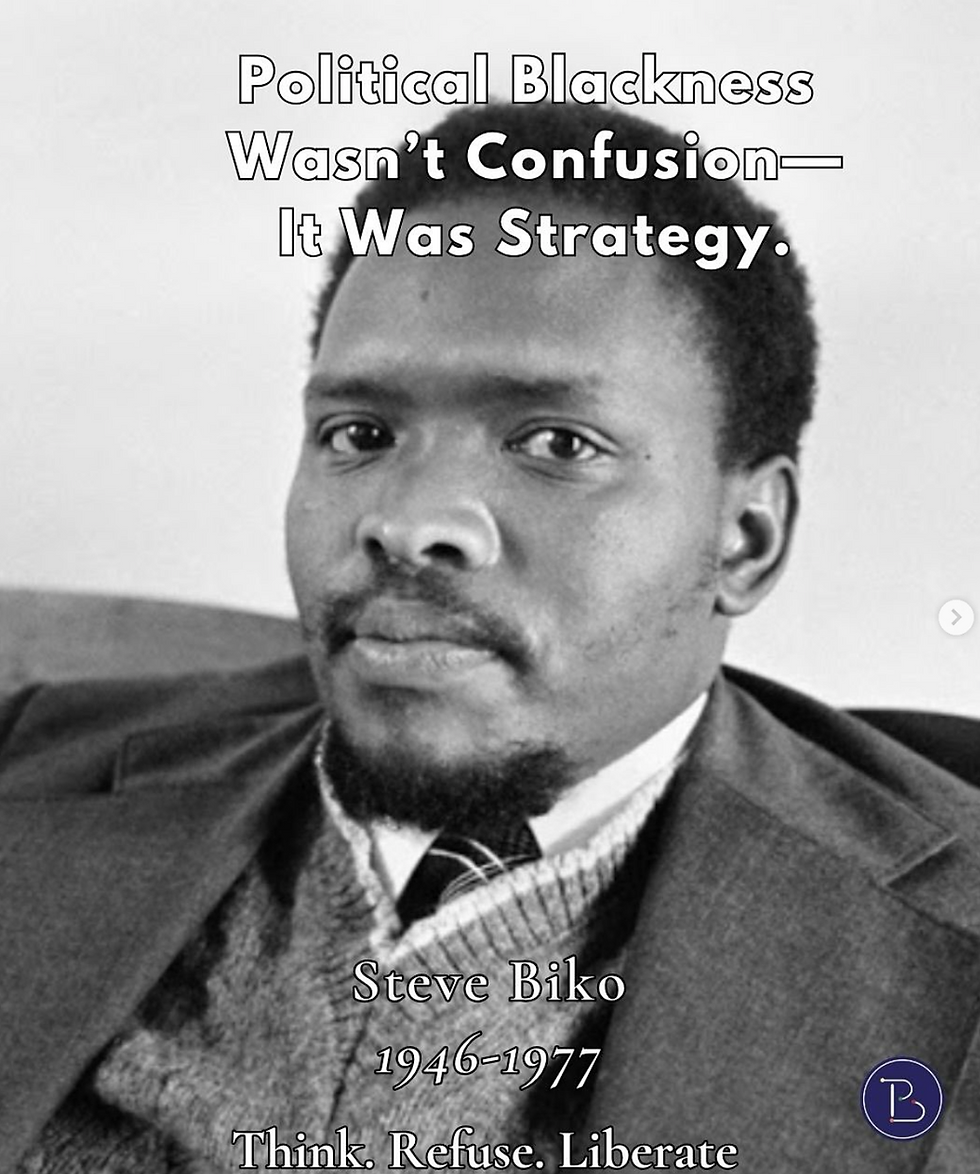Steve Biko: Political Blackness Wasn't Confusion — It Was Strategy
- Jonah Batambuze

- Aug 5, 2025
- 3 min read

Steve Biko Didn’t Die for Diversity
Steve Biko didn’t die for diversity.
He died for clarity.He died for Blackness — as a politic, not a pigment.He died because he knew that until the mind was free, no movement would last.
In apartheid South Africa, “Black” didn’t just mean African. It meant anyone denied dignity under white supremacy. Africans. Indians. Coloureds. Those displaced, demeaned, and dehumanized by a system built to fracture and rule.
This was Political Blackness — not confusion, but strategy. A refusal to let colonial categories divide a shared struggle. It was a call to see liberation as something that transcended ethnic lines and national borders, rooted instead in shared oppression and a collective fight for dignity.
Biko said:
“Being Black is not a matter of pigmentation, it is a reflection of a mental attitude.”
He meant it.
Biko built Black-only student organizations, not out of exclusion, but survival. The South African Student Organisation (SASO) was designed to give Black students — African, Indian, Coloured — a space free from white liberal dominance. He believed that even the most well‑meaning white liberal voices often carried unconscious paternalism, diluting the urgency of Black self-determination.
He rejected tokenism before it had a hashtag. He warned that white liberalism could never dismantle a system it still benefited from. To him, liberation wasn’t something you politely requested. It was something you claimed — with your mind, your refusal, and your solidarity.
Black × Brown Solidarity in Action
Biko’s political Blackness created one of the strongest historical precedents for Black × Brown unity in the Global South. Under apartheid, African and South Asian communities were deliberately segregated, their struggles pitted against each other. Political Blackness dismantled that division, insisting that South Asians in South Africa — who also faced discrimination, disenfranchisement, and cultural erasure — had a role to play in the shared fight for liberation.
It was a solidarity forged not in abstract “multiculturalism,” but in the shared experience of oppression and the strategic need for collective action.
His Death
In 1977, Biko was arrested under South Africa’s Terrorism Act. He was beaten, tortured, and left naked in a cell for days. Denied medical treatment, he was eventually transported — naked, shackled, and severely injured — over 700 miles to Pretoria, where he died on September 12, 1977. He was 30 years old.
Biko didn’t carry a gun. He carried a mirror — and forced a nation to look.
Why His Words Still Cut Deep
Today, his words remain dangerous because they demand more than representation. They demand reckoning.
Because what Biko taught us is this:
Pride without power is decoration.
Solidarity without truth is theater.
Liberation without clarity is just a costume.
And if you didn’t know — now you do.
Further Reading
I Write What I Like – Steve Biko’s collection of essays and speeches.
The history of the South African Student Organisation (SASO).
Jonah Batambuze is a Ugandan-American interdisciplinary artist and founder of the BlindianProject, a global platform remixing Black x Brown identity through art, history, and storytelling. His work moves across installation, film, writing, and education—challenging systems of erasure while building new cultural blueprints.
Batambuze speaks and facilitates internationally on topics including Black South Asian solidarity, caste and colonial legacies, diasporic memory, and cultural resistance.
For speaking engagements, workshops, or media inquiries, contact: jonah@blindian-project.com or visit jonahbatambuze.com/speaking




Comments